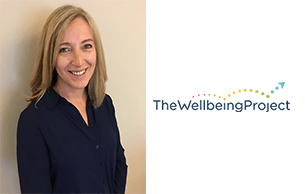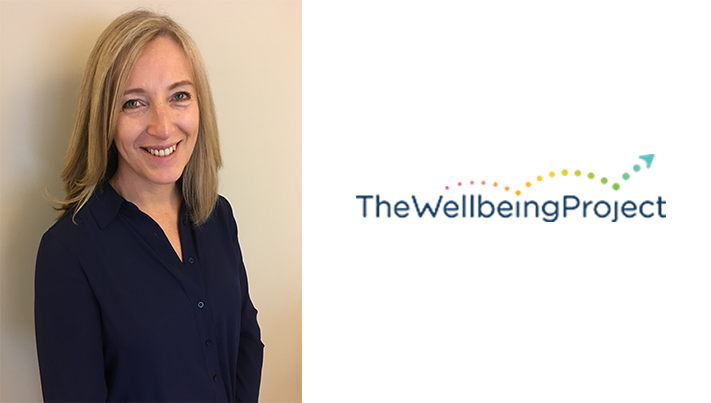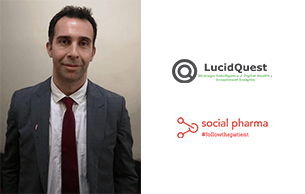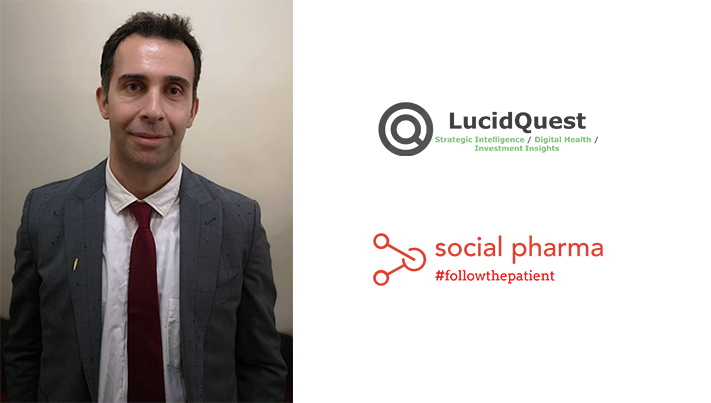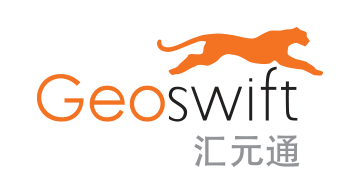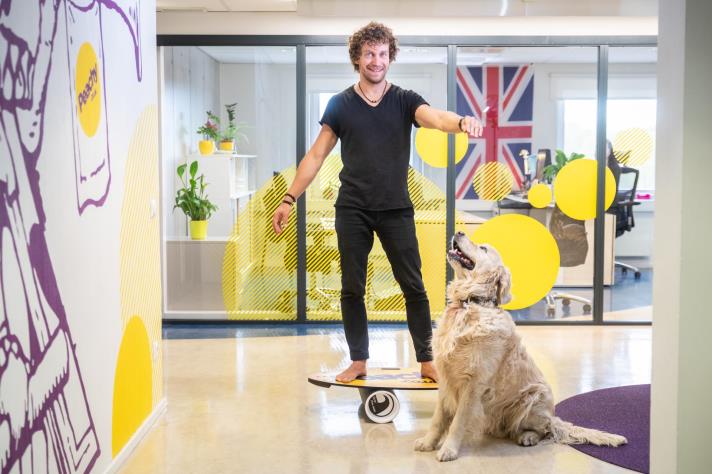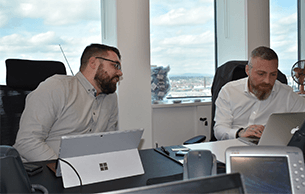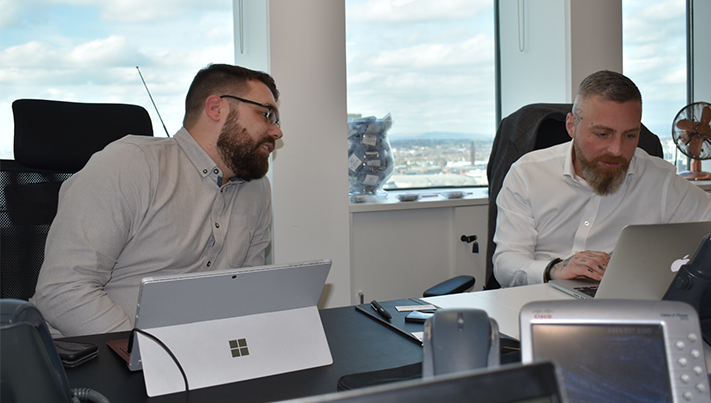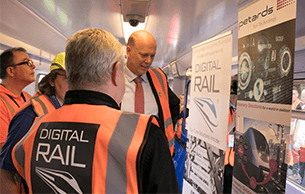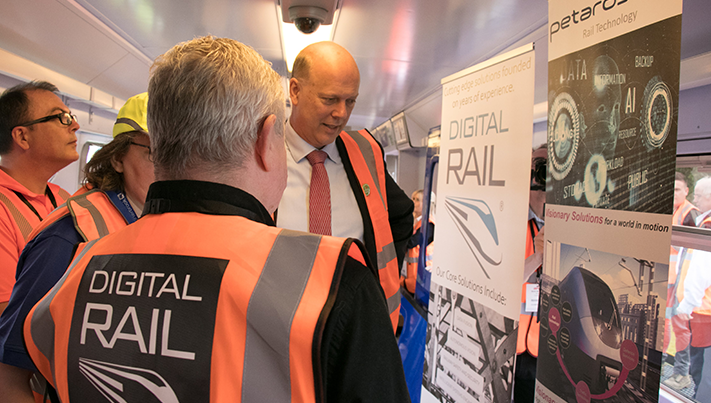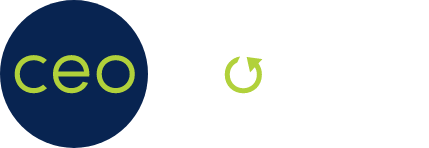
As champions of the telehealth market in the MENA region, Health at Hand are the key to revolutionising the global healthcare market through doctor-on-demand services, driving the sector into the modern age of business. As a result of their considerable efforts, the firm’s CEO, Charlie Barlow, was recognised as 2019’s Health Tech CEO of the Year for the Middle East and North Africa in CEO Monthly’s 2019 Business Elite spotlight. Eager to find out more about their innovative services, we spoke to Charlie who discussed how Health at Hand have distinguished themselves in this competitive arena.
Healthcare has, by all regards, remained rather traditional in the face of vast paradigm shifts that have embraced industries of all sizes around the world. Technology, the great driver of change, has accelerated and revitalised industries that were growing stagnant or tired. The global transportation industry, for instance, experienced a paradigm shift with the arrival of Uber, capitalising on a readilyavailable technology and the ever-growing gig economy. In the years since, others have moved to follow in Uber’s path – Careem, Lyft, Via, and Gett being the most prominent among them- springing up to bring an altogether more client-centric approach to on-demand travel services.
It’s in this vein that Health at Hand was established, combining an accessible everyday technology with a very real, very present need: acting as a muchneeded disruptor in an industry that was showing signs of fatigue, stumbling when development control of their own healthcare – a quality that cannot be overestimated in an environment that can often be defined by the exact opposite: long wait times, a lack of efficiency, bias and inequality. As Charlie explains, this patient-centricity has helped quickly differentiate the company in a sector that was eager for change. “Health at Hand is a patient centric business, truly democratizing the patient experience. Aware that telehealth is a new experience for many, we are proud to have the highest doctor accreditation standards in the region, and we go over and above what is required of us from a data privacy perspective. We have a multi award winning technology platform, having won Innovation of the Year at the 2018 Middle East Insurance Industry Awards, and late last year won a significant scholarship with Google in Silicon Valley. Perhaps our most significant endorsement is our partnership with Allianz, who have chosen to work with Health at Hand across their 4,500,000 clients in the MENA region.”
“There is no doubt that we are regarded as the thoughtleaders in the MENA telehealth space and are proud to work closely, and consult to, regional governments and health authorities.”
Naturally, Health at Hand’s success has also been the result of a dynamic team of expert doctors and a best in class technical team. For Charlie, the company has thrived as the result of their efforts in a market that, though ripe for opportunity, has its own challenges to overcome. “Our staff are absolutely fundamental to our success. With offices in the United Arab Emirates and Pakistan, we are culturally and gender inclusive and operate with a flat structure, and with a focus on collaboration and innovation. In addition to our brilliant technology team, our doctors are the shining lights.
and innovation was in demand and sorely needed. Here, Charlie offers more background to the company’s inception: “As the first fully-licensed, and Dubai Health Authority regulated, telemedicine company, Health at Hand is changing the primary healthcare landscape across the MENA region. As an online doctor solution, our vision is to bring the highest standard of healthcare to everyone, wherever and whenever it is needed the most, with a strong focus on ‘ethical health’.
“Health at Hand allows patients to see doctors from the comfort of their own home or office, through the development of our own proprietary video-based application. We provide video consultations with a wait time of a few minutes. Services provided include: sick notes, e-referrals and medicine delivery. Anyone can download the free Health at Hand app from the Google Play or the App Store to access our highly qualified doctors.”
Convenience is, ultimately, only part of Health at Hand’s unique offering. “Crucially, Health at Hand removes the difficulties associated with visiting a doctor, providing quantifiable cost-savings for corporates and insurers, while at the same time reducing the abuse surrounding the over prescribing of medicine.” It is, above all else, a necessary tool in the face of growing demand and dwindling resources.
Charlie continues, outlining the core innovation-first ethos of Health at Hand as they look to pivot a sector that should -always- put the patient at the centre of its services. “We were the first healthcare company in the MENA region to commission a telehealth white-paper and are currently following this up with our second white paper, the region’s first comprehensive healthcare study of blue-collar workers. Providing a solution for all, we strongly advocate that access to quality primary healthcare is a basic human right rather than a privilege for the few.”
At the end of the day, Health at Hand puts the patient in – a quality that cannot be overestimated in an environment that can often be defined by the exact opposite: long wait times, a lack of efficiency, bias and inequality. As Charlie explains, this patient-centricity has helped quickly differentiate the company in a sector that was eager for change. “Health at Hand is a patient centric business, truly democratizing the patient experience. Aware that telehealth is a new experience for many, we are proud to have the highest doctor accreditation standards in the region, and we go over and above what is required of us from a data privacy perspective. We have a multi award winning technology platform, having won Innovation of the Year at the 2018 Middle East Insurance Industry Awards, and late last year won a significant scholarship with Google in Silicon Valley. Perhaps our most significant endorsement is our partnership with Allianz, who have chosen to work with Health at Hand across their 4,500,000 clients in the MENA region.”
“There is no doubt that we are regarded as the thoughtleaders in the MENA telehealth space and are proud to work closely, and consult to, regional governments and health authorities.”
Naturally, Health at Hand’s success has also been the result of a dynamic team of expert doctors and a best in class technical team. For Charlie, the company has thrived as the result of their efforts in a market that, though ripe for opportunity, has its own challenges to overcome. “Our staff are absolutely fundamental to our success. With offices in the United Arab Emirates and Pakistan, we are culturally and gender inclusive and operate with a flat structure, and with a focus on collaboration and innovation. In addition to our brilliant technology team, our doctors are the shining lights.
Our focus is on value-based healthcare, and all our highly qualified doctors are specifically trained in telemedicine. Being a relatively new concept for the region, we work hard on ensuring that a user’s first Health at Hand telehealth consultation is a great experience.”
In many ways, the Middle East was the perfect proofing ground for Health at Hand. As a hub of technological and business development, it offered the right balance between eager adopters and regulatory criteria. Equally, it is a rapidly changing region with an ever-increasing need for a healthcare service that can be flexible and robust enough to sate demand. Essentially, by being able to meet the region’s high standards and expectations of healthcare, Health at Hand have a proven ability to flourish in almost any other market.
“Telehealth in the MENA region has come a long way since Health at Hand was incubated in 2016 and our great working relationship with regional regulators, including the Dubai Health Authority, has led to quick and necessary regulatory reform. We are however cognizant of the fact that this is a highly regulated sector, as it should be, and no corners should be cut at the expense of the patient. With an increase in diseases of affluence (e.g. obesity and diabetes), an ageing population, an increase in life expectancy, telehealth in the MENA region is at an inflexion point. Health at Hand are proud to be at the forefront of this growth as we continue to provide ethical healthcare across the region.”
Finally, in his closing comments, Charlie touches on the future of Health at Hand as they prepare for a promising year ahead. “Telehealth has never been needed more in the MENA region, with healthcare inflation at all-time highs and health insurers running at loss ratios of circa 105%. In 2019, Health at Hand will not only cement our place as the market leader in the United Arab Emirates, but we are looking at entering between three to five new countries across the region within the year. With regional governments moving towards mandatory health insurance and mandatory telehealth utilization, these are exciting times.”

Company: Health at Hand
Address: Dubai, United Arab Emirates
Website: https://www.myhealthathand.com
Telephone: +971 55 637 1615

